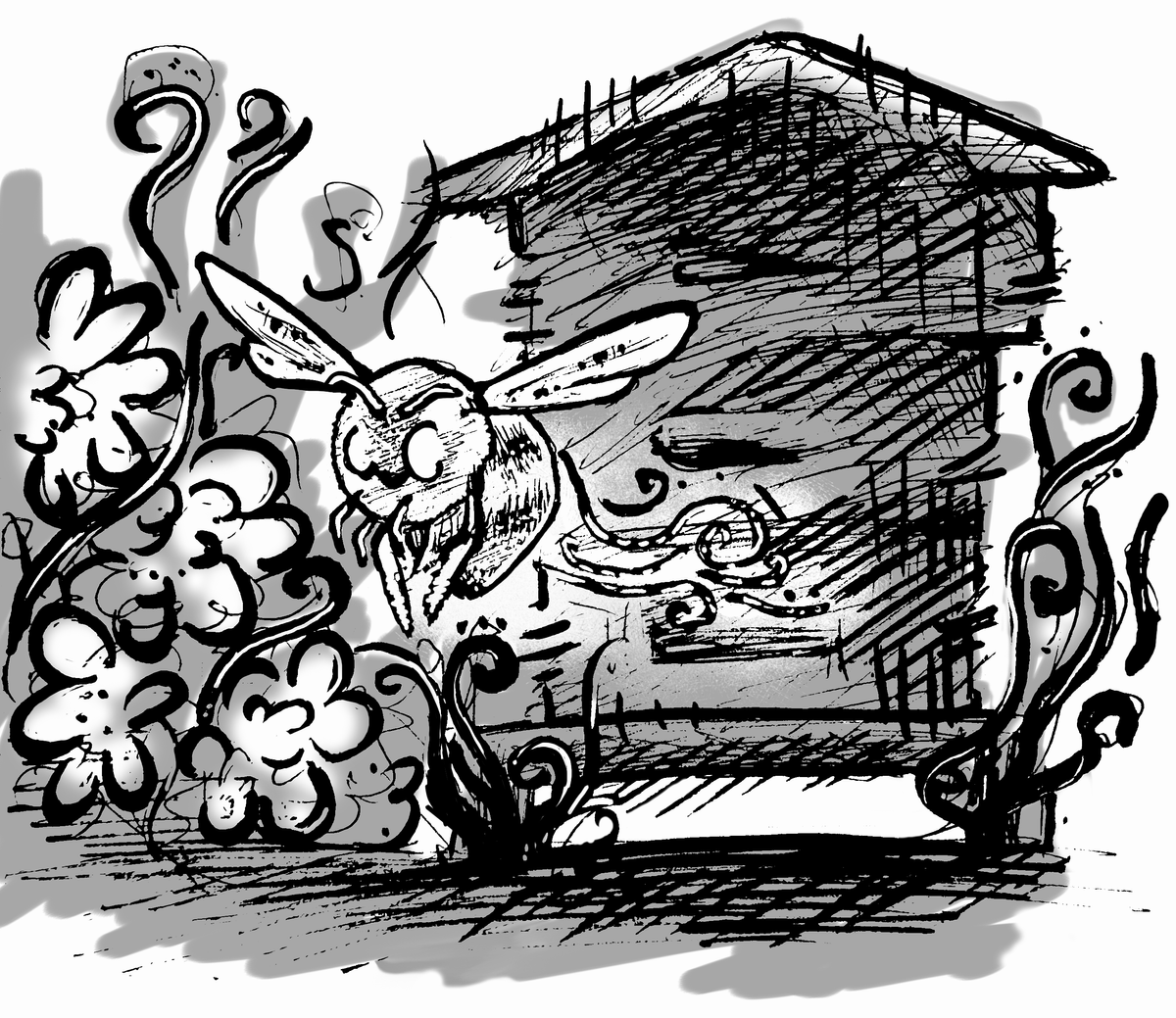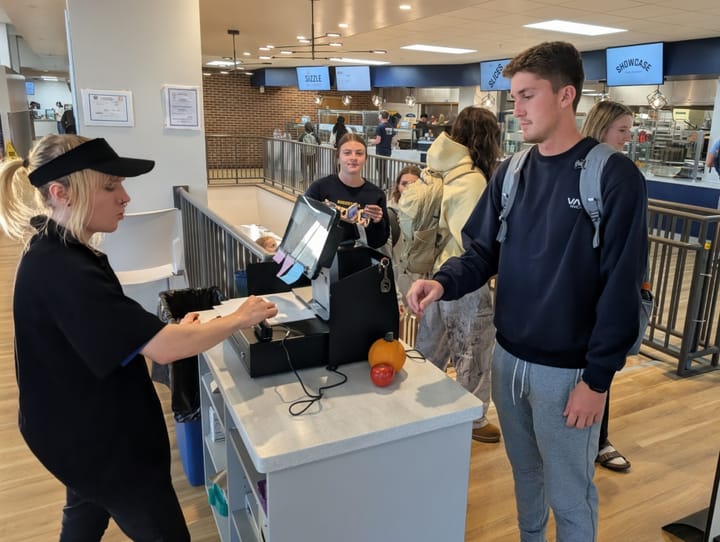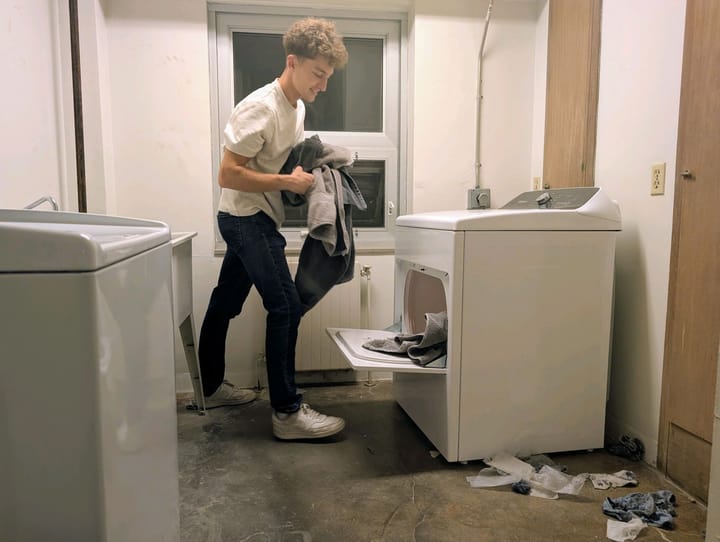Students to bring beekeeping and hives to campus next semester

Bees will be added to campus this spring, bringing with them the hope for greater biodiversity, interconnectedness with the environment and sustainability efforts.
“I think they’ll do some good work in pollinating, and they’ll also teach us something about where our food comes from,” said professor David O’Hara, director of sustainability. “About a third of our food comes from pollinators so they’ll be a reminder on campus that every third bite that you take depends on pollinators.”
The Augustana Orchard Pollinator Project began two years ago with senior John Walker’s interest in beekeeping. Walker wanted to see how bees could improve and maintain the environment and rejuvenate the biodiversity around campus.
“I think we need to start reconstructing the environment on campus, and I think that’s one thing that’s being neglected with the 2030 Vision plan,” Walker said. “We’re looking at a lot of band-aid solutions — putting in some nice LED lights and stuff — but we are not looking at the biodiversity that we are destroying in the process and figuring out how we’re building that back.”
Walker approached O’Hara about bringing bees to campus, but was met with a city ordinance that required any beekeepers in Sioux Falls to clear their activities with neighbors before having bees.
Walker spoke at a city council meeting and made the community aware that Augustana and other similar campus communities were interested in beekeeping. He also argued why these larger campuses should be exempt from the ordinance. Through his actions, Walker convinced lawmakers to adjust the ordinance and made beekeeping available to Augustana.
After two years in a pandemic, Walker is now less involved in the Augustana Orchard Pollinator Project than he once was. Senior Brayden Harris now leads the charge for bringing bees to campus.
The Augustana Orchard Pollinator Project is funded through a sustainability grant Augustana received five years ago. The total cost is projected to be between $500 and $1,000 for the initial setup and about $100 annually, according to O’Hara.
O’Hara said he hopes the bees will eventually produce enough honey to create a net profit. For honey production, Harris hopes local beekeepers can be involved in the harvest and can teach students how to harvest honey themselves.
“Our ice cream will be honey,” said Walker in hopes that one day the honey will be available as an alumni product similar to South Dakota State University’s ice cream.
The bees will be placed between the Moses statue and the apple orchard because there isn’t a lot of traffic in the area. Additionally, the prairie garden, orchard, vegetable garden and maple trees are all nearby for the bees to pollinate.
Harris has decided to purchase Russian bees, although he said the species of bee is not very important as the bees will become hybrids with local bees within two years. The bees will be purchased in January and are expected to arrive in March at the earliest depending on distribution issues due to COVID-19.
There will be a 6-foot fence surrounding the bees to prevent people from being stung. According to Harris, bees will have to fly to the fence height to leave and enter their hives and will stay at that height for their flight, hopefully soaring above everyone’s heads.
Harris got involved in the Augustana Orchard Pollinator Project when O’Hara approached him in 2020. Harris said he wasn’t specifically interested in bees at first but was interested in sustainability and wanted to help.
Harris met with local beekeepers, including Dale Hill, who has a doctorate in animal nutrition, about what type of hive to build, what type of bees to have and how to care for the bees.
The hives will be modeled after a Russian bee hive. Harris went with this design because it has more insulation and higher winter survival rates for bees in cold climates.
Harris said he also hoped to implement a smart hive that can track temperature and humidity and monitor bees with a camera. He hopes he can also include a bee facial recognition system to track bee populations, although some of these features may be a long way off.
Harris and sophomore Janae Becher will be leading a beekeeping group on campus that will care for the bees and manage honey production. While beekeeping is open to everyone on campus, so far, Augie Green has led the effort in preparing to care for the bees when they arrive. Becher, the president of Augie Green, will be the head beekeeper.
“Personally, I want to do it for sustainability and also because of my interest in bee bread — researching the chemical makeup of it and seeing how the properties interact with our biology as humans,” Becher said.
Along with taking an informal class on beekeeping in January 2021, Becher practiced beekeeping over the summer while studying the chemistry of bees’ microbiomes at Dakota Wesleyan University. In the class, Becher learned to identify diseases and pests in hives, safety and allergy procedures, hive care, comb management and how to identify bee anxiety.
Becher’s duties as head beekeeper include coordinating training, scheduling bee care, harvesting honey and coordinating supply needs. She hopes to recruit more beekeepers from both Augie Green and the larger Augustana community.
O’Hara, Harris, Becher and Walker all hope the bees will be integrated into classes on campus. Specifically, O’Hara hopes classes in the biology, ecology and Civitas departments will be involved in observation and honey collection, although any class is welcome to teach with the bees.
The biology department plans to use the bees in an evolution course.
“We can use the bees to study social behavior and group selection,” said Carrie Olson-Manning, a biology professor. “We can also study the function of the mitochondria by harvesting them from bee thorax muscles. We can conduct biochemical assays under different conditions, for example.”
Olson-Manning is helping Harris and Janae plan for the bee’s arrival in the spring. She will be the project’s scientific adviser and help recruit and train new students on beekeeping.



